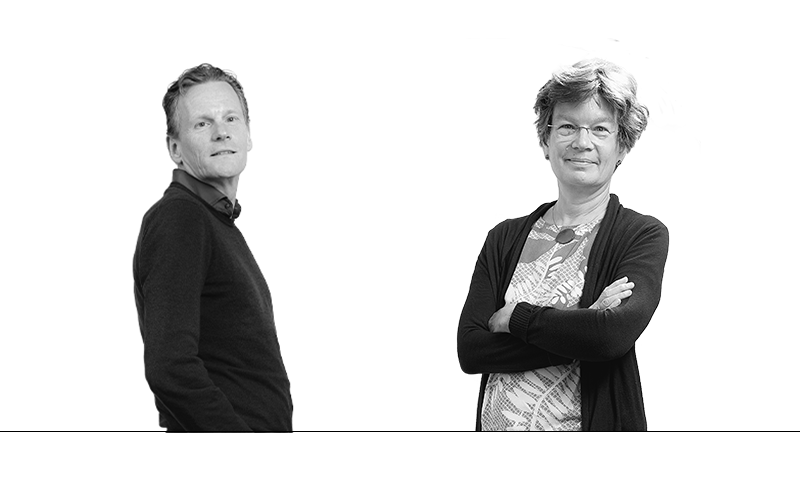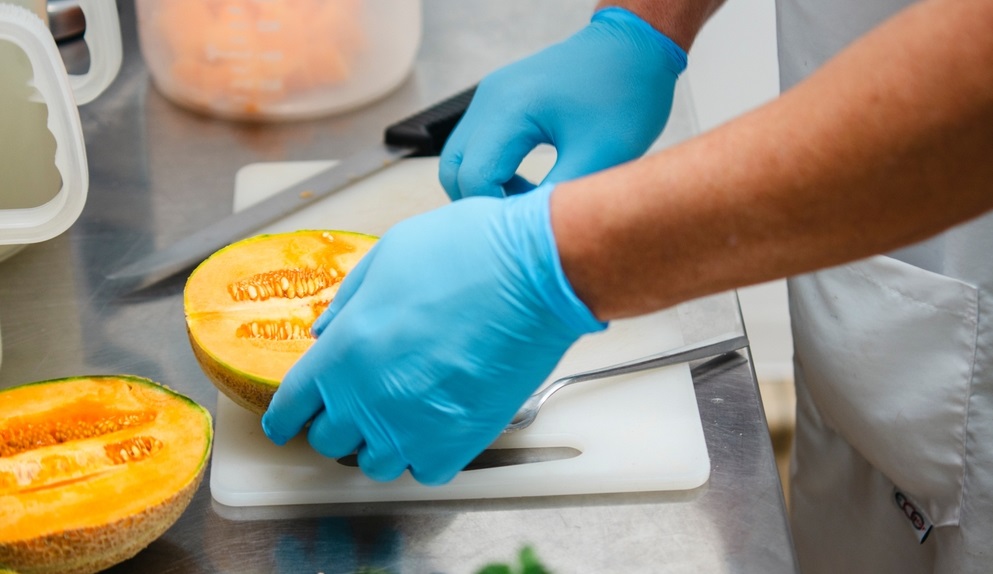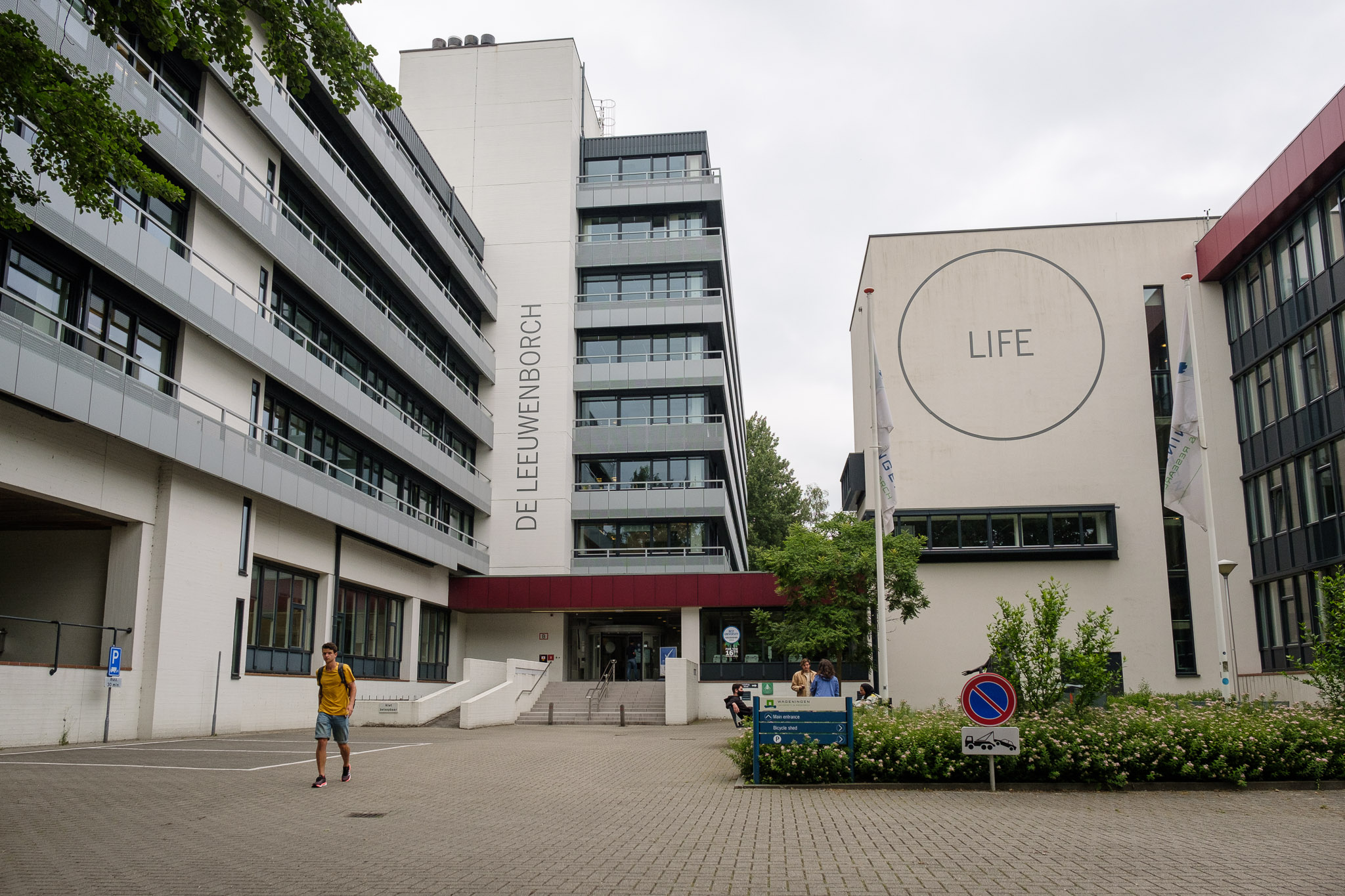Text: Marieke Enter
Is it high time the WUR canteens took meat off the menu completely?
Delft University’s Faculty of Architecture recently banned meat from the menus in its canteens. A great idea that deserves to be copied by Wageningen without delay? Or a dubious bit of gesture politics that unacceptably infringes on the right to decide what you eat? Professor Cor van der Weele and researcher Hans Dagevos mull over the pros and cons.
Who’s talking?
Cor van der Weele is extraordinary professor of Humanist Philosophy (Social Sciences) and is known for her research on public reactions to in vitro meat. Consumption sociologist Hans Dagevos (Wageningen Economic Research) is closely involved as a senior researcher in the annual survey of meat consumption in the Netherlands.
Dagevos: ‘Whether there’s any point in a measure like that depends on what you’re aiming at. In terms of behaviour, it is general knowledge that people adapt their eating habits more easily once they have got to know something new. You can see that with the consumption of insects, something I happen to have just finished a review on. But whether you are more likely to give up meat at home if you don’t get served it in the canteen anymore is anyone’s guess. We just don’t know.’
Van der Weele: ‘The protein transition is going quite slowly, so I understand the desire to take big steps. But that doesn’t always go well. I remember a farm occupation by animal activists in 2019, which led to the formation of the Farmers Defence Force. The nitrogen crisis then put the wind in their sails. Overall, fewer farmers are now open to going sustainable than were then, and a tremendous polarization has developed. A backlash like that is not unthinkable with meat-free canteens, either.’
We mustn’t duck the question of whether food should always be available everywhere
Hans Dagevos
Dagevos: ‘People can display compensatory behaviour, for example. That’s called self-licensing – when you reward yourself after an act of “self-denial”. Even more recalcitrant reactions are possible too – meat as the desirable forbidden fruit, or as an act of protest. You can call that juvenile if you like, but these are the sorts of reactions you get with bans and rules.’
Van der Weele: ‘Although it could change in the right direction too: people might actually appreciate getting a kick up the backside to join the meat transition. It is unpredictable. But just the fact that people are talking about it shows that change is in the air. It’s true, there is not much change in our consumption levels yet, but meat-eating is much less a matter of course.’
Broader issues
Dagevos: ‘Our society has a strongly liberal tradition. Freedom of choice seems to be ethical principle number one. But in view of the massive diet-related problems of health, sustainability and animal welfare, we mustn’t duck the question of whether food should always be available everywhere. As a university, we have a responsibility to tackle these kinds of controversial questions, I think.’
Van der Weele: ‘When freedom of choice is taken away, there is also the question of what justifies that. It’s best to talk about it together. For food issues, it is relevant that food is a major topic in Wageningen, and that we find ourselves in an occasionally uncomfortable balancing act between traditional and innovative food production. At WUR, it wouldn’t be very consistent to ban meat only from the canteens and then close the subject. A recalibration of the range of options in our canteens should be the starting point for a broader rethink of our priorities, including in our education and research.’
Dagevos: ‘As a signal from the university, the canteen menu is quite important. Delft scrapped meat for the sake of reducing CO2 – very functional, very technological, fits Delft perfectly. But not WUR. We are working on food issues so intensively and diversely, and that should be a reason to tackle the issue more creatively and comprehensively.’
How do you justify taking away freedom of choice?
Cor van der Weele
Van der Weele: ‘If they are concerned about CO2 in Delft, they should ban not just meat but dairy products too.’
Dagevos: ‘Exactly. If Delft replaces meat with cheese rolls, that won’t make a big difference to their CO2 emissions.’
Advert
Dagevos: ‘In my opinion, WUR should not restrict the discussion about canteen menus to whether or not meat should be on them. I am in favour of a kind of flexitarian canteen, with all the types of food we work on in Wageningen: local, organic, bio-dynamic, and with all sorts of alternative sources of protein. Showcase all that diversity, literally, and transform our canteens into an advert for the breadth we have to offer at WUR.’
Van der Weele: ‘It would also be so interesting to do experiments. Not just with restricting freedom of choice, but also with interventions aiming to get people on board. Put up the price of meat, for example, reduce the amount of it on offer, provide a lot more information, and plan veggie weeks. And let research show what works and how it works. We are still really looking for room to manoeuvre. And for ways of speeding up, because we’ve really got to change our diet. Hopefully we are now in the run-up to making bigger strides.
Dagevos: ‘Yes, those questions are rapidly becoming more urgent. The transition to healthier and more sustainable food is going slowly, whereas its importance is increasing fast. If we stick to existing structures and dogmas, we will never, ever achieve the UN’s Sustainable Development Goals.’

 Hans Dagevos and Cor van der Weelde. Photo: Guy Ackermans
Hans Dagevos and Cor van der Weelde. Photo: Guy Ackermans ![[Seriously?] The Gulf of WUR](https://www.resource-online.nl/app/uploads/2025/02/WEB_DeNeus.png)

